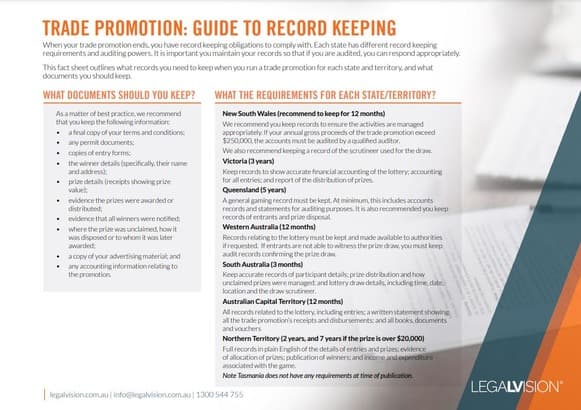As a musician, your biggest asset is your creative talent – your music. The music industry can be tough and it can be difficult to get ahead and be recognised amongst all the other talented artists. If you have the opportunity to work with a producer, the last thing you want to do is bring up legal work. However, if you want to protect your biggest asset, a well-drafted legal contract is critical. This article explores the key terms to include in your contract with a producer.
What Kind of Contract Do I Need?
As a musician, you may engage a producer to help you create and broadcast your music. As producers provide you with a service, you should enter a service provider agreement. It does not matter what you name it as long as it governs the nature of your relationship and includes all the important terms you need.
You may find that the producer gives you a contract rather than you drafting one. This is fine and quite normal, considering they are providing you with the service. However, rather than signing the agreement blindly, it is essential to understand key terms in your contract.
When Should I Sign the Contract?
Signing a contract before you begin working with the producer is best practice. This ensures all parties involved have a clear understanding of their rights, expectations and obligations. Notably, you should review and negotiate the contract before you sign it.
You may be working on multiple projects with the same producer. In this case, you could choose to sign one overarching agreement with more clauses that will govern the entire relationship and then have separate ‘schedules’ for each project, which outline the specifics. Otherwise, you may decide to sign a separate agreement at the start of each project.
Continue reading this article below the formWhat Terms Should be in the Contract?
Services
Clarifying the scope of services the producer will complete is essential. Otherwise, you may run into misunderstandings between what you expect and what the producer delivers. In your contract, clearly outline what services the producer will provide and if there are any specific exclusions.
Term and Termination
You should always record how long the agreement will last. It may be an ongoing contract until either party terminates, or it may have a specific term, for example, one year. Likewise, having a well-drafted termination clause outlining how each party can end the agreement is vital.
You may agree on giving the parties the right to ‘terminate for convenience’. This means the ability to terminate without any specific reason. There is usually a notice period attached to this right.
Separately, there is also the right for the parties to ‘terminate for breach’. As the name suggests, this means the ability to terminate when the other party breaches a term of the agreement. We recommend including this clause in your service agreement to ensure you are not bound to complete your obligations if the other side fails to uphold their end of the agreement.
Payment
Payment terms should clearly state expectations around payment, including:
- how much you will be paying the producer;
- how they will invoice you; and
- timelines for payment.
You should also review what happens if you make a late payment. For example, the producer may charge you a late fee or add interest to the amount due. Whatever you decide, ensure that the fee is fair.
Intellectual Property
An intellectual property (IP) clause is one of the most critical clauses in the agreement. Usually, each party will retain their rights to intellectual property created before, or separately from, the project. Your contract should specify who will own the intellectual property developed through the project.
Determining who owns the copyright to the final music that is produced can be a complicated matter. The answer to this question will determine many other important rights, including who has:
- performance and communication rights (the ability to broadcast the music on the radio for example);
- adaptation rights (the right to re-rewrite your song for example), and \
- moral rights (the right to be acknowledged with the music for example).
Other Key Clauses
Other standard clauses in client contracts include warranties, liabilities, indemnities and confidential information. These are all essential clauses for managing risk and responsibility and should be well drafted to ensure you are well protected.

This fact sheet outlines what records you need to keep when you run a trade promotion for each state and territory, and what documents you should keep.
Key Takeaways
Whether a producer has sent you their contract for review or you need one drafted from scratch, take notice of the contract terms and whether you receive adequate legal protection. Key terms you would expect to see in your service agreement include those relating to:
- scope of service;
- term and termination;
- payment;
- intellectual property;
- warranties and indemnities; and
- confidential information.
For more information about music contracts or assistance drafting your commercial contracts, our experienced contract lawyers can assist as part of our LegalVision membership. For a low monthly fee, you will have unlimited access to lawyers to answer your questions and draft and review your documents. Call us today on 1300 544 755 or visit our membership page.
Frequently Asked Questions
A service agreement is a legal document that outlines the terms, conditions, rights and obligations between one party who offers a service and another who receives the benefit of the service. Relevantly, a producer will be the party who delivers a service to you, as a musician.
An intellectual property clause is one of the most critical clauses to review in your musician contract with a producer. In the creative space, determining who owns the rights to the final product is contentious. Therefore, your contract should specify who will own the intellectual property developed through the project.
We appreciate your feedback – your submission has been successfully received.












